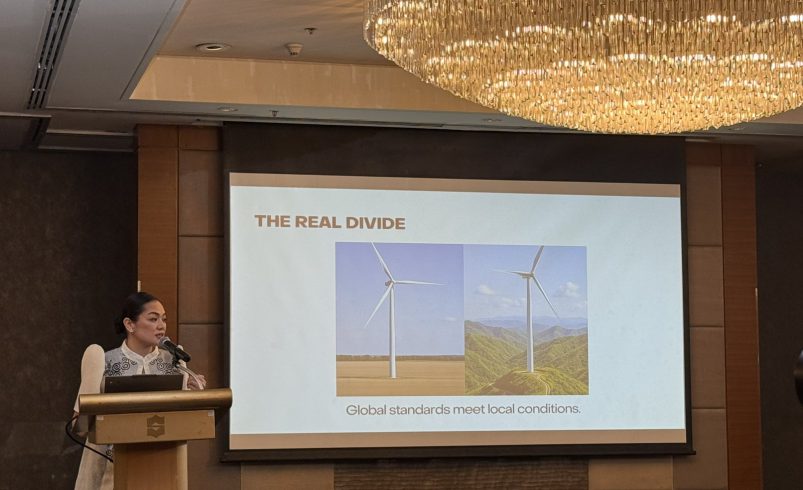Most expensive mistakes begin in the cheapest phase of wind projects –Philsurv exec
- October 21, 2025
- 0

Most wind energy project delays in the Philippines start long before construction begins, said Katrina Lardizabal, General Manager of Philsurv Geodetic Services, during the From Site to Signature: Accelerating Wind Energy Projects in the Philippines forum organized by Philsurv Geodetic Services on October 15 at Shangri-La Makati.
Lardizabal said that the pre-development stage—when developers conduct surveys, validate boundaries, and plan access routes—is often treated as a minor cost but carries the highest risk. “The most expensive mistakes begin in the cheapest phase,” she said. Small gaps in data, she explained, can snowball into major engineering or logistical setbacks later on.
Drawing from more than a decade of on-site experience, she outlined the common issues that cause delays: incomplete or inaccurate boundary surveys, unverified topographic data, lack of coordination with local governments and communities, and impassable access roads during the rainy season. She also noted that some foreign engineering designs fail to account for local terrain, which leads to grading or foundation errors once construction begins.
According to Lardizabal, the solution lies in early and continuous validation—ensuring that boundaries, topography, and design coordinates are consistently verified at every stage of project development. “Precision isn’t paperwork,” she said. “It’s financial protection.”
She added that the Philippines’ geography makes wind development more complex than in other countries, specifically citing fragmented land ownership, varying terrain, and localized authority structures. Because of this, she stated, developers must combine international standards with local practicality.
Lardizabal also highlighted challenges in offshore projects, noting that developers still depend on foreign-chartered vessels for LiDAR deployments, which lengthens permitting timelines. She noted that these realities need to be reflected in project schedules to avoid unrealistic expectations.
In closing, she urged developers to “validate first, contract second,” emphasizing that sound groundwork determines project success. “Every megawatt starts not with technology, but with the terrain and how well we understand it,” she said. “If we measure better, plan better, and build better, those 178 gigawatts won’t stay on paper—they’ll become towers and turbines that power real progress.”
Do you think local developers are giving enough attention to early-stage site validation in renewable energy projects?
Follow Power Philippines on Facebook and LinkedIn or join our Viber community for more updates.